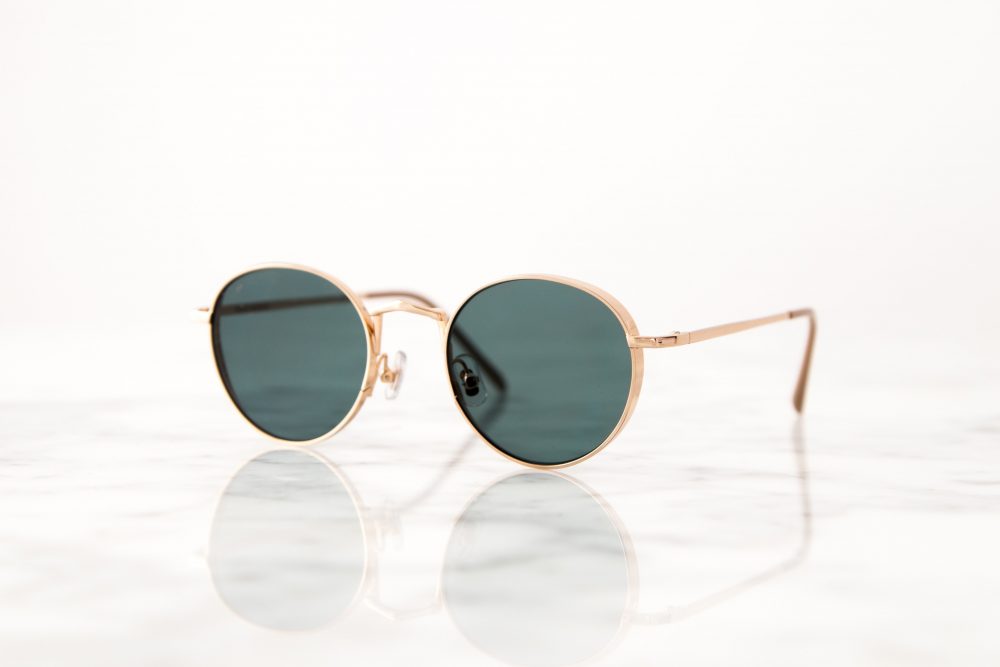
Ditch Your Sunglasses?
Al Sears, MD, CNS – Just like your skin, your eyes can be damaged from TOO MUCH sun exposure. Ultraviolet (UV) rays from the sun can damage the whites of your eyes, your retina and iris. Too much UV light can lead to sunburned corneas and cataracts.
Modern medicine’s fear of the sun has gone way too far.
Eye doctors tell you to wear sunglasses whenever you’re outside.
They say it protects your eyes and your vision. (Photo by Steinar Engeland on Unsplash)
What they don’t take into account is that your eyes need sunshine. You see, the natural light of the sun is what gave our primal ancestors healthy vision. Wearing sunglasses and blocking the light deprives your eyes of vital nutrients like vitamin D.
I’ve visited native tribes in remote villages all around the world. And one of the many things you won’t see are sunglasses. But just like our primal ancestors, the tribes have perfect vision.
Now don’t get me wrong…
Just like your skin, your eyes can be damaged from TOO MUCH sun exposure. Ultraviolet (UV) rays from the sun can damage the whites of your eyes, your retina and iris. Too much UV light can lead to sunburned corneas and cataracts.
But new research shows the importance of the sun for your eyes.
A British study
from the University College London revealed that vitamin D3 “the kind you get from sunshine” improves vision and reduces inflammation of the retina. They also found that it may prevent age-related macular degeneration (AMD), the biggest cause of blindness in people older than 50.1 Another study found that people with the most vitamin D had a 59% lower risk of AMD.2
Low vitamin D levels are also linked to dry eye syndrome. This inflammatory condition causes discomfort, stinging, redness and fatigue in your eyes, as well as blurred vision. Studies show that up to 74% of people with low vitamin D levels had dry eyes compared to just 12% for a control group.3
Other research shows that more exposure to bright sunshine slashes your risk of myopia or nearsightedness.4
Blocking light with sunglasses doesn’t just affect your eyes.
It impacts your whole body. When the sun’s light enters your eyes, it also goes to your brain’s hypothalamus.
Your hypothalamus controls your body’s circadian rhythm, temperature, hunger and thirst. It affects water balance and blood pressure. It also controls your body’s master gland, the pituitary, which secretes many essential hormones.
Changes in sunlight also activate your pineal gland. During the day, light from the sun inhibits the production of your sleep hormone melatonin. As dark falls, the pineal gland starts releasing melatonin so you can sleep. Melatonin is also a powerful antioxidant. And it’s responsible for regenerating the rods and cones in your retina for sharp vision.
Sunglasses confuse your body about whether it’s day or night.
We need the extremes of full light and absolute darkness to be healthy.
How to Have Native Eyes
I advise my patients to expose their eyes to natural sunlight for at least 20 minutes a day. Here’s how to protect your eyes at other times.
1. Listen to your body. If the sun is strong enough to make you squint, get some shade. Instead of sunglasses, wear a hat with a brim or a visor. Most of the time this is plenty to protect your eyes from direct sun rays. But you still get the benefit of full-spectrum light.
2. Check your medication. Some medications can increase your eyes’ sensitivity to the sun. These include diuretics, tranquilizers, tetracycline and some other antibiotics.
3. When to wear sunglasses. I reserve my sunglasses for high-intensity sun activities like skiing, water sports or high altitudes. Snow and water can magnify the sunlight and increase your risk of damage. I also use them when I’m out in the intense sun for extended hours. But most of the time I don’t wear them. Then, choose the right kind of sunglasses. Look for a pair with “99-100% UV absorption.” Or look for “UV 400.” This means they block all UVA and UVB rays. “Polarized” glasses help reduce glare but they don’t necessarily meet that UV standard.
4. Nourish your eyes. Studies show astaxanthin increases blood flow and antioxidant protection throughout the eye. It has the power to soothe and protect the deepest parts of your eye, including the central retina.5 It also helps relieve dry eyes, double vision and blurring. And it protects the eyes from light damage. In fact, people who take it report being able to see clearer and sharper.
Wild-caught sockeye salmon has the most astaxanthin of any food.
Red trout, red sea bream, lobster, shrimp, crawfish, crabs, lobster and salmon roe all have it, too. But to get the vision benefits of astaxanthin I recommend supplements. Take at least 10 mg per day
Keep in mind that astaxanthin is fat soluble. Take it with a meal or snack containing some healthy fats like butter, coconut oil or eggs.
To Your Good Health,
Al Sears, MD, CNS
References
1. Vivian L, et al. “Vitamin D rejuvenates aging eyes by reducing inflammation, clearing amyloid beta and improving visual function.” Neurobiol Aging. 2012;33(10):2382-2389.
2. Millen AE, et al. CAREDS Study Group. “Vitamin D status and early age-related macular degeneration in postmenopausal women.” Arch Ophthalmol. 2011;129(4):481–489.
3. Yildirim P, et al. “Dry eye in vitamin D deficiency: More than an incidental association.” Int J Rheum Dis. 2016;19(1):49-54.
4. Rose KA, et al. “Outdoor activity reduces the prevalence of myopia in children.” Ophthalmology. 2008;115(8):1279–1285.
5. Cort A, et al. “Suppressive effect of astaxanthin on retinal injury induced by elevated intraocular pressure.” Regul Toxicol Pharmacol. 2010;58(1):121-130.
To read the original article click here.
To read more articles by Al Sears, MD click here.






